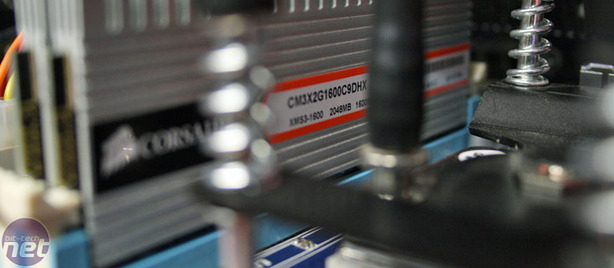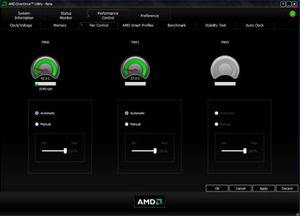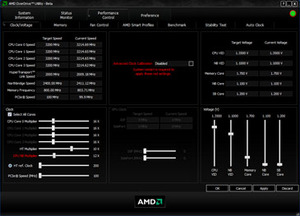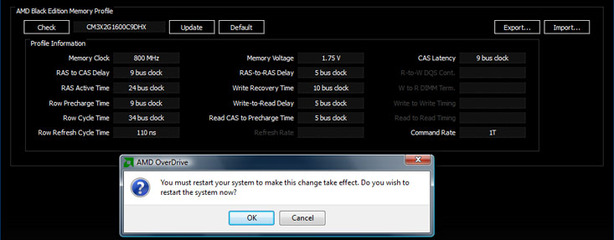AMD OverDrive 3.0
It's continually refreshing to see AMD committed to overclocking and its OverDrive software. Nvidia tried it briefly with ESA and its System Tools, and Intel never got out the gate with the Extreme Tweaking Utility which was due to arrive in 2007, and we saw once at CeBIT 2008, but never again.While we are inherently against the idea of a "platform" because it restricts user choice, the advantage of the OverDrive software is you can use as much or as little as you want. Obviously the advantages for using the software with AMD hardware or approved kit are clear, but it doesn't stop you choosing other hardware and using alternative software/BIOS.
AMD's latest OverDrive, version 3, might actually warrant itself as a key bit of software, especially as AMD gets back into the competitive swing of things with its Phenom IIs. OverDrive 3.0 is yet another evolution of the software launched in 2007 along with the original Phenom. Version 3 features a few new options:
Black Edition Memory Profiles
AMD's latest addition is loosely to follow in the footsteps of Nvidia's EPP, EPP2, and Intel's XMP technology with BEMP. While the technology is limited to AM3 Black Edition CPUs specifically, this does add more weight and reasoning to buying the Black Edition part - AMD has shown it's been committed to releasing top to bottom overclocker CPUs, unlike Intel who only unlocks its multipliers if you're happy to throw a thousand dollars in its direction.BEMPs are exclusively tied to OverDrive 3.0 but the AM3 motherboard will require a general BIOS update to take advantage of it. There are a few currently available but more will turn up in time.
The difference between EPP2, XMP and BEMP is that AMD's option not a firmware level setting - you don't buy DDR3 with BEMP inside the SPD. This is great, because it means memory vendors and even home users can retroactively add and share them to DDR3 already being sold and owned as well. No longer is it rigidly locked to the hardware you buy, although we've yet to ascertain whether AMD is charging memory companies to label their products as "BEMP compatible" or "BEMP Profile available", just like both Nvidia and Intel charge for EPP2 and XMP respectively.
For the lazy though, it requires an Internet connection to one click check if the memory being used as a BEMP attached to it, then it requires a reboot before effectively applying the pre-checked BIOS settings. It's not really any different from going into the BIOS and applying them yourself, or even optimising the settings further once they've been applied. All it is is a "guaranteed overclock".
Like EPP2, BEMP overvolts the hardware where necessary, but it also goes one step further as it even overclock the integrated memory controller, improving inherent performance as well. For example, armed with a pair of Corsair CM3X2G1600C9DHX we set these up with the Phenom II X4 955 on a Gigabyte GA-MX790FXT-UD5P with the latest F3l BIOS available from its website. After downloading and enabling BEMP, not only did it auto overclock the CPU memory controller to 1,600MHz 9-9-9-24, as the memory is rated to, but it also overclocked the CPU memory controller from 2GHz to 2.4GHz - typically improving raw bandwidth performance considerably.

Finally the other advantage in the way it's designed is that the imported/exported BEMP profiles are simply XML files, so if you're brave/skilled enough they can be edited within any text editor. There's no locking down with a custom extension and no DRM as it's an open format.
As we see it, the current limitations are adoption of this technology, how many AM3 Black Editions can AMD sell, how well it promotes the BEMP to memory companies and the online community, and if the AMD Game website hosts a list of official profiles as well as hosting user generated ones too. AMD has stated that "right now there is no plan to enable an AMD database where users could send their profiles. The main concern here would be stability of the profiles." but we feel that's missing the value in a free, community led resource.

MSI MPG Velox 100R Chassis Review
October 14 2021 | 15:04












Want to comment? Please log in.